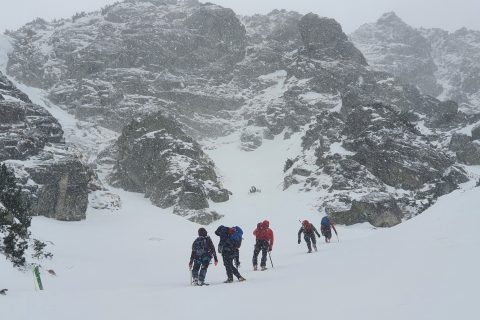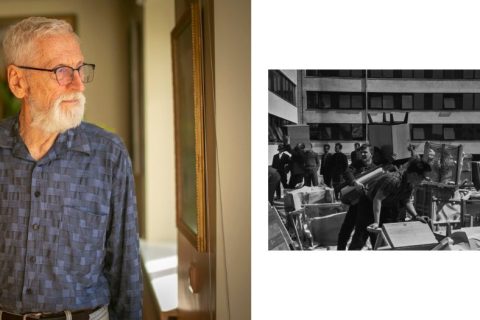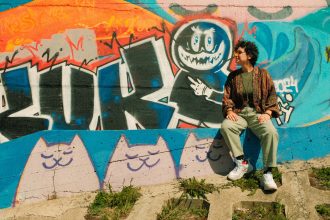One of the most mystical places in Lithuania for me is the Molėtai Astronomical Observatory, which is dedicated to observing and studying celestial bodies and various cosmic phenomena of the atmosphere and Earth. Every visit there is like being in another dimension that takes your breath away for a moment. Imagine what it would be like to fly into space or spend a few weeks in a Mars simulation with a group of other scientists. In order to define the limits of this imagination, I talked about space and the study of human groups with a space sociologist, Dr. Inga Popovaitė.
Inga, after your studies at the University of Iowa in the United States, you returned to Lithuania and joined the research team of the KTU Faculty of Social Sciences, Humanities and Arts. Based on knowledge of informatics and data science, here you explore gender roles, emotions, group dynamics. Tell us how you decided to become a scientist and what this journey was like.
In fact, the road wasn’t all that straight. I didn’t want to be a scientist at school – I dreamed of becoming a journalist. I finished my studies in journalism, and I worked as a journalist for a while. After that, I decided to go to Georgia to do volunteer work. After spending time there, I realized that the desire to continue studying returned, that is how I ended up in Hungary, at the Central European University (CEU), where I studied for a master’s degree. I was hooked and wanted to continue my studies. That’s how I enrolled in doctoral studies at the University of Iowa in the USA.
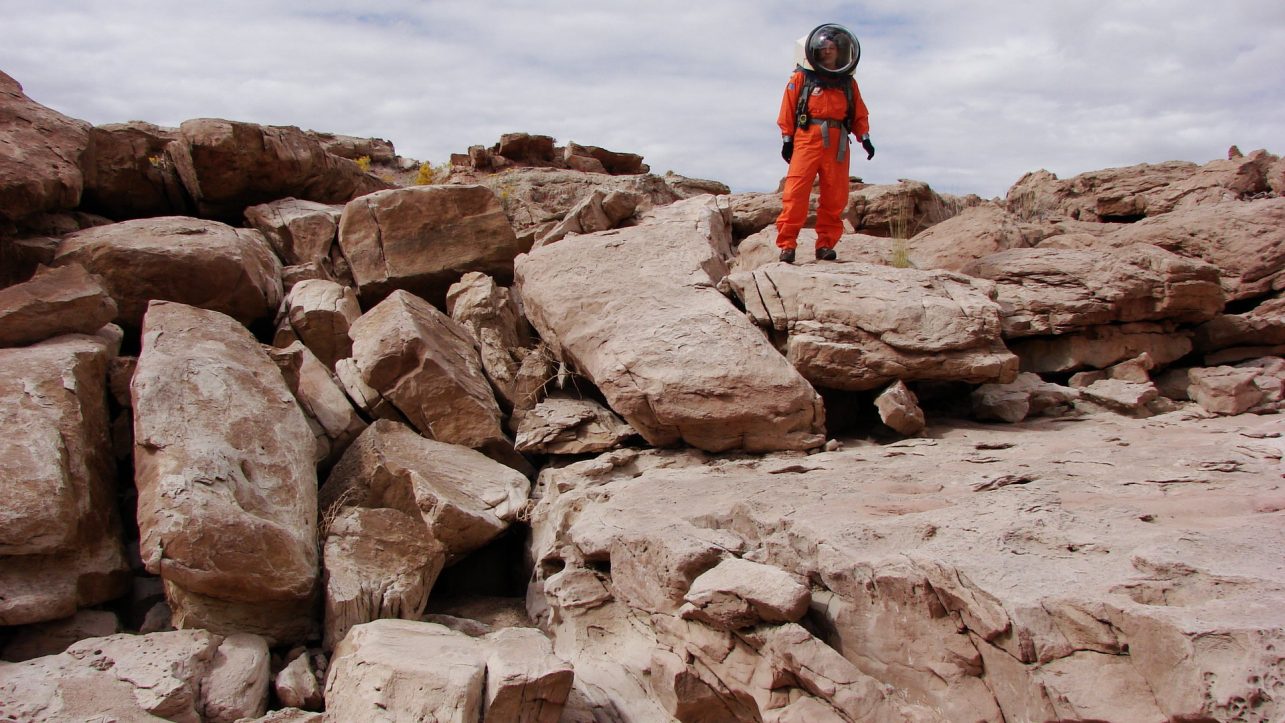
For as long as I can remember, I always wanted people to listen to me, to make my opinion count. As a scientist, you are the expert, the person who can tell people what to do and what not to do. And they listen to you because, well, you have a Ph.D.
But yes, the path was not so straight, it seems that many positive coincidences happened on the way. I found myself in the right places at the right time, met a lot of different people along the way and gotten to where I am now.
And why did you decide to study this particular area? I mean space and groups of people.
Because not that many sociologists study it; it is a relatively new thing. And I, as a scientist, am fond of discovering something new. On the other hand, space itself, research, space travel are very attractive to me. Both to read the news in my spare time and to study.
I started reading psychological research about groups of people in space, living in isolated conditions. This happened a few years before covid, when we didn’t even imagine that we could actually live almost normally under such conditions. Well, more or less.
The lack of such research greatly motivated me to choose the topic of my dissertation. I realized that I would not have to look for tiny cracks, because I would explore a wide scientific space. At the time I also worked in a sociology laboratory, where we studied interpersonal relationships under experimental conditions, for example, who is inferior to whom in various task conditions. Then I thought that everything on the space station would be similar to our laboratory: people work together, live together, etc. I had never seen such sociological research before, so I thought it would be a great opportunity.
You spent two weeks in the Mars Simulation Laboratory in Utah, living the way you would if you were on Mars. It would be interesting to hear about your positive and negative experiences as a woman in this field of technology.
This whole topic is really very popular and relevant right now, but space is very masculine, and male dominated. Nevertheless, the experiences were more positive than negative, all the participants of the mission (there were four of us) were waiting for this for two years. According to the original plan, I was supposed to go there in April 2020, but the worldwide quarantine happened. It’s quite ironic: that time we couldn’t go to the desert to isolate ourselves with people, because we all isolated ourselves in our countries, at home with our relatives. I couldn’t research isolation because the whole world was isolated.
After two years of waiting, it finally happened. It is probably important to mention that I was also pressed for time: I had to finish my dissertation, so I was glad that I managed to use the data from the live presence in the Mars simulation. You know, it’s one thing to read about it, study other people’s experiences, and it’s quite another to experience it yourself, to discover the contexts of that scientific, experiential side. And the place itself is wow. The base really looks like it is on Mars. Cylindrical building, small buildings, desert. Colours are red, grey, blue and greenish. It is completely quiet, no birds. It was good to be in the middle of nowhere with three other people.
Now, almost a year later, I remember mostly good experiences. It was interesting to notice that one older participant kept telling us that we should talk and discuss less and do more. You could really feel the generation gap. But our team leader was also a woman, so it helped a lot. As a leader, she cared about our experiences, often talked to everyone, asked if we were getting what we came here for, how the project itself was going. We always ate together, probably to maintain team spirit. As far as I know from my own research, male leaders don’t always do that extra emotional work.
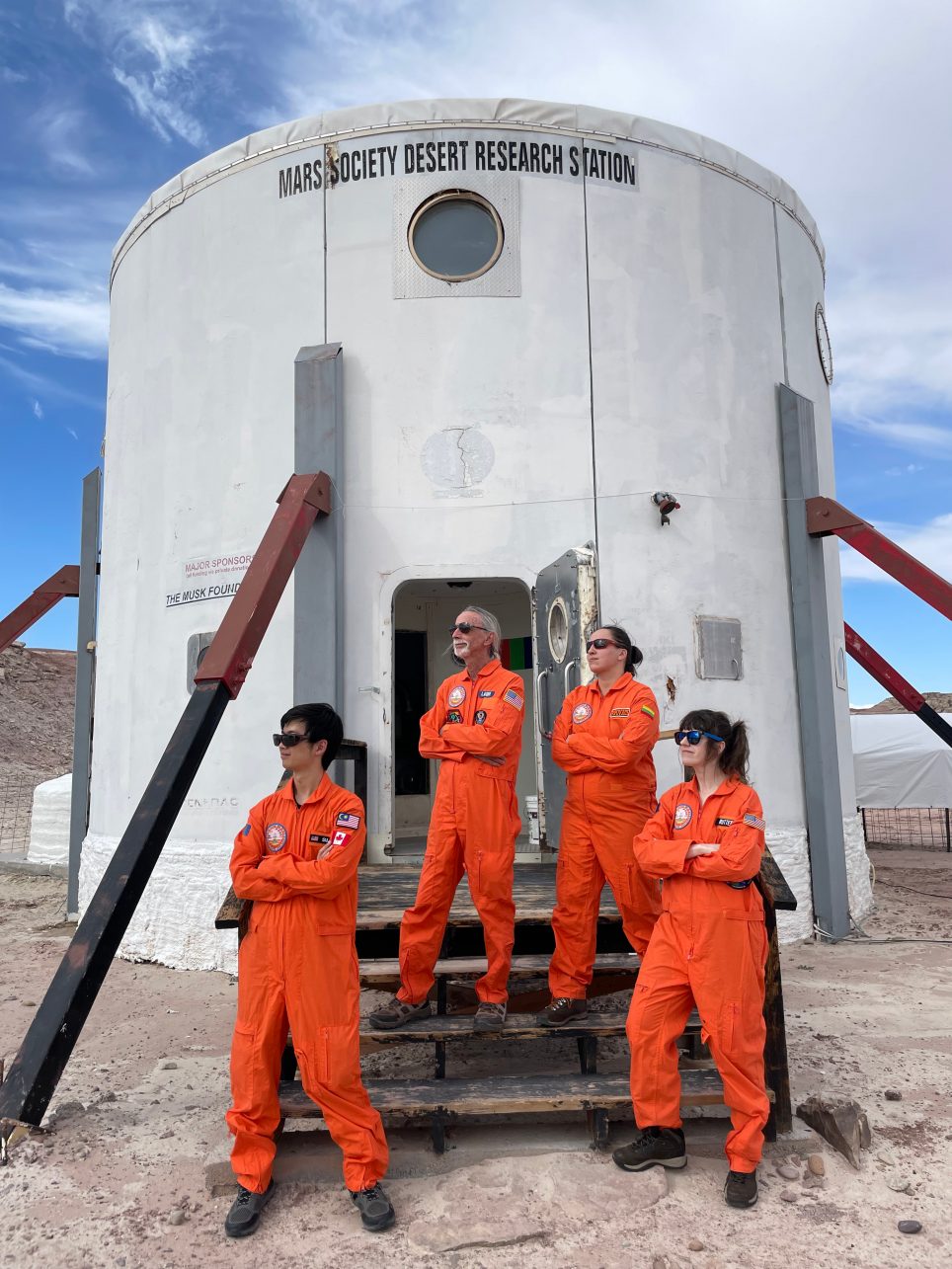
And where and how does one apply for such an experience?
Let’s start from the very beginning. If you want to fly into space, you can’t just do it, you need to know how people would live under these conditions, how would everything look like, what crises might arise. On earth you can basically study space only in the International Space Station, and astronauts’ time is very limited, barely five-minute intervals, so it is really difficult to get their data. As a result, there are ten or so places around the world where you can study space while on Earth, and these are space analogues. Conditions reminiscent of long-term space flights – isolation, limited resources (for example, water, Internet, communications) – are created there naturally or artificially. I was in the place, which is one of the oldest private analogues. It is not an initiative of NASA or the European Space Station, but a private, non-profit organization. They built the base with the help of NASA in 2001. It’s a little easier to get there – every year, questionnaires are published in which you need to tell about yourself, your research project, submit various permits, etc. Basically, anyone can apply. Participation is paid unless you have a sponsor who pays for you. The selected participants go to the simulations about a year later, for example, now the call was completed at the beginning of this year, and the formed teams will go to the simulation in 2024.
I think too often we think of a single inspirational figure, especially in science. Scientific work is teamwork.
I got there after finding this unofficial archive of all the teams that have participated in the analogue in the past 20 years online. Every day in that Martian environment, one of the most important mandatory tasks is to prepare the daily report of the manager, the journalist, engineer and so on. Reports are sent to mission control to let them know how things are going, and then everything is posted online and made available to everyone. This data was a treasure trove for me. I was able to start a sociological study and see what happened in different teams over twenty years. In other words, I could study not just a couple of trees, but the entire forest. Then I went to one of their conferences, met the administration, told them that I was using their data, and they were very happy and offered me to join the project. They invited me, supported me and selected a great international team.
What does a day in the simulation look like?
We each worked mostly on our own project, occasionally completing tasks together. We organized popular science talks with children. Actually, the days pass really quickly because there is a lot to do. Each team brings its own research projects that are planned for several years but people have just two weeks to implement them. It is observed that the participants complete only about 60 percent of what was planned. You feel that time is very limited, but you also want to chat with your colleagues.
As you mentioned in an interview, studying inequality is especially important to understand how to prevent it. Your own research shows that gender roles are changing little by little, but the changes are extremely slow. Why so?
If I knew the answer, I’d probably get some sort of Nobel Prize in sociology, even though there isn’t one. But on a more serious note, things change so slowly for many reasons. When talking about gender inequality, we can separate three levels. The first one is personal, which emphasizes who I am, what my identity is, how I position myself, how I feel, express myself through gender: male, female or gender neutral. The second is more of a communication level, describing how I communicate with another person, what their and my own gender means to our communication, what my subconscious thinking is. The third level is society’s attitude (considering what people will think, whether your behaviour is in line with society’s norms), as well as available material and physical resources. And in order for inequality to decrease, all the mentioned levels must change. This is really very difficult to do. For example, if the structural level changes, let’s say a quota system is introduced, it is determined that a certain number of women must be in the governing bodies of the state or elsewhere. Structurally everything is fine, you see the change, the participation of women increases, but on a personal level, people often don’t accept that change. That’s what makes things so slow: things have to change everywhere at once.
But I am also glad because I see that the younger generation is already different. It is strange to talk about myself as someone that is no longer a part of younger generation but now, seeing the students in Lithuania or America, I get calmer. They are so cool. What’s gender? Whatever you want it to be. They don’t see labels. You know, older people say: you are a woman, speak in a calmer and quieter tone, don’t swear, maybe don’t even ride a skateboard, don’t dress like a boy. And now: you can do whatever you want. Same goes for boys. About 15 years ago, there was a lot of hatred and aggression on every corner in Kaunas. Now everyone is much freer, it is no longer strange to see guys with different coloured hair, gender expression is much more diverse, there is no need to put people into boxes anymore.
What external factors would encourage girls to enter the field of technology?
We draw boundaries not only between men and women, but also between humanities and sciences. Is programming a very exact science? Depends how you look at it. It’s basically another language you learn to be able to talk to a computer, so profiling into exact sciences and humanities is rather erroneous. Especially in schools, this overlaps with gender stereotypes. Such a stereotype prevents girls from choosing exact sciences, which are often described as more complicated, they supposedly need more thinking and work. But if we look at the history of programming, the first programmers were women and only a little later it became a “male” field. Besides, learning a language is also difficult. Communicating with people is also not much easier than sitting in a laboratory.
In conclusion, we should probably stop talking about the exact sciences as a completely separate world, reserved only for special people. It is better to talk about the different skills acquired. It’s good that the new generation is doing what they want more and more boldly – maybe the stereotypes will finally disappear.
Now back to you. I wonder if you have to face more challenges or stereotypes when working in technology?
Now that I have the additional word “doctor” to my name, things are a lot easier. I participate in discussions as an expert, so I immediately tell myself that no one can belittle me just because I am a woman. I know exactly what I’m doing.
A few years ago, I had the opportunity to speak at an interdisciplinary conference, the participants of which were mainly engineers and space enthusiasts. I was giving a presentation on gender in space analogues and, ironically, throughout the presentation, participants and the moderator interrupted me, made inappropriate and harassing remarks. Some were really disrespectful, questioned my data and even the study itself because, according to them, this wasn’t even a study or science, but activism. A year later, I went there again, but this time I did everything a little differently. I started the presentation wit numbers and graphs rather than talks about gender. All these people, who said that social science is not science were unable to argue after facing the language of mathematics. You start to speak their own language, show the current situation with numbers, and immediately change people’s attitude towards you.
The most interesting thing is that the ones who usually don’t want to hear about gender equality are those who say they don’t hire employees based on gender – they are hiring a person. This is a red flag that lets us know that the company probably hires men more often. Because if we say we don’t see gender, we’re usually talking about men.
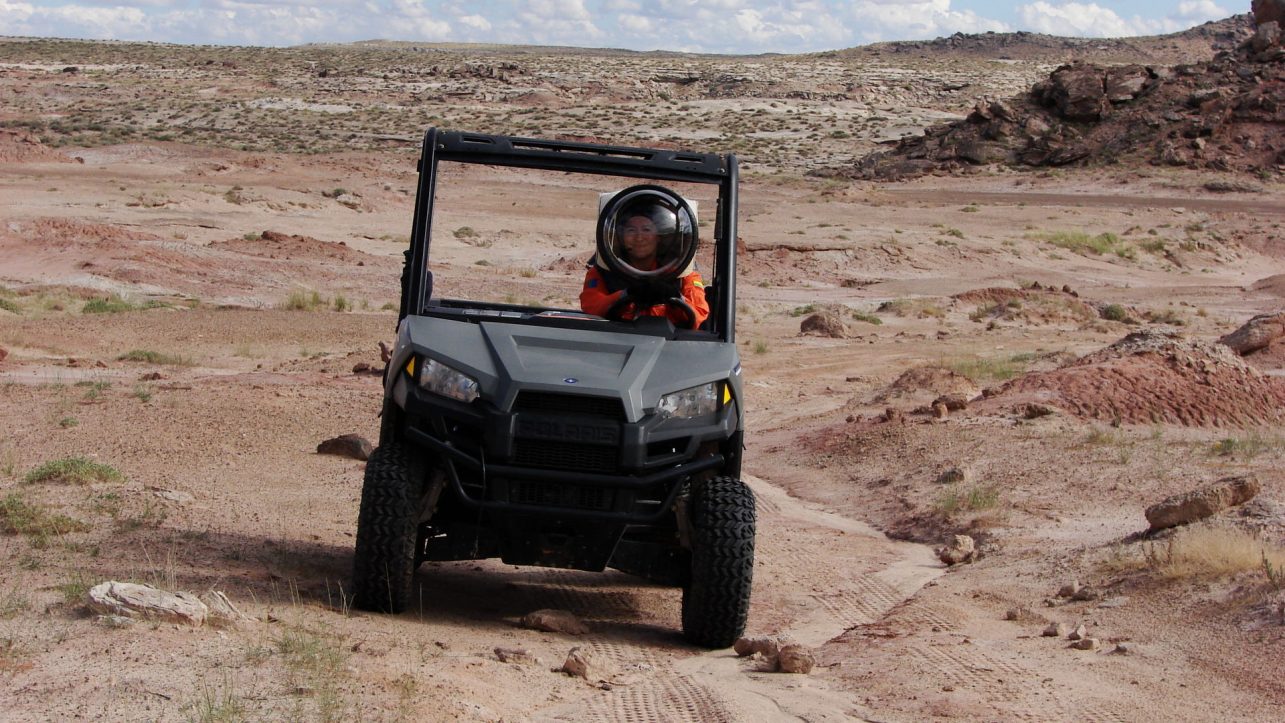
Do you draw professional inspiration from other women?
To be honest, I am inspired by many people. I think too often we think of a single inspirational figure, especially in science. Scientific work is teamwork. Therefore, my source of inspiration is very wide: people I meet, communicate with, work with, whose articles I read. I’m very happy to be surrounded by so many interesting, strong, stubborn women, both in my personal and professional life, who do what they want, do it well and don’t care what other people think. I’m trying to learn that too.
What things or stereotypes that you discovered by yourself are slowly disappearing?
Perhaps the saddest part is that I have yet to discover anything that sociologists don’t already know. But I will probably go back to admiring the younger generation. I see that people are changing, and this promises a much better tomorrow. In the social space, even with working algorithms, people see a wide variety of content and understand that the world is not just black and white, as if this is where the man ends, and this is where the woman begins. There is a lot of overlap in looks, interests, sexual orientations and elsewhere. Through my research, I try to show that instead of talking about gender differences we should focus on the fact that due to social reasons some people do more of certain things than others. Although, for example, there are no significant differences between male and female brains.
Tell us what you are trying to achieve long term.
Now, we just started a new project with Polish scientists, for which we used data from the polar station. We will examine people’s emotions, atmosphere, life. I want to go to Antarctica or a polar station for a longer period of time, live there, experience it, get as more varied context as possible. Those two weeks in the Mars simulation weren’t enough for me. I would also really like to start working with real astronauts, their data, not just space analogues. And, also, I would like to wish myself to be less serious, less cocky and communicate to everyone that science is a fun thing.

